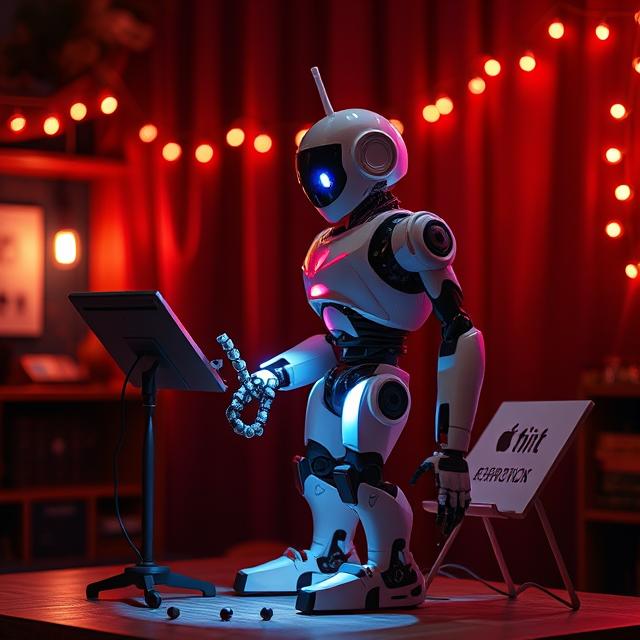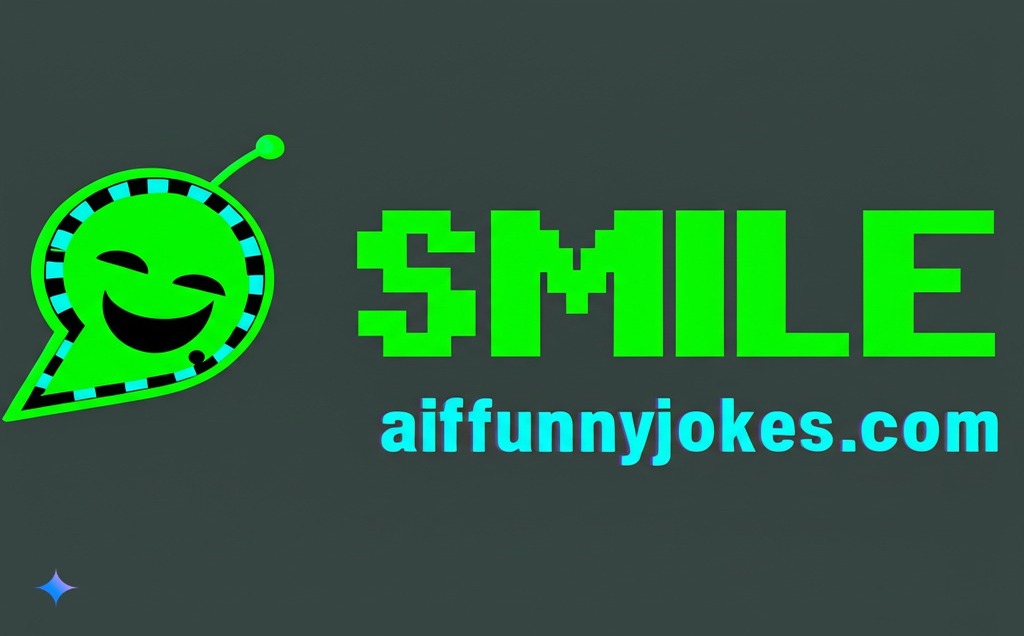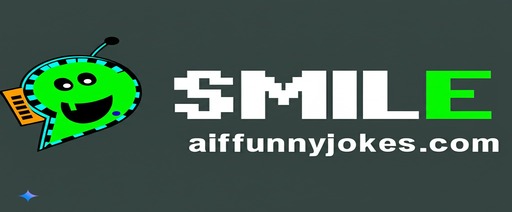
The most pressing AI joke copyright questions today have no clear answers – we’re in a legal gray area where no one definitively owns AI-generated jokes yet! When a machine creates a punchline, current laws weren’t designed to handle it. Is it the AI company’s property? The user who prompted it? Or does it belong to no one?
AI is suddenly everywhere – writing essays, making images, and yes, cracking jokes too. It’s raising some pretty confusing questions about who gets credit when a computer comes up with something funny. If ChatGPT writes a joke that makes you laugh so hard you spit out your coffee, who should get the credit (or blame)?
What happens when a robot comedian becomes the next viral sensation? Who owns those punchlines? As AI humor improves, this isn’t just a theoretical debate – it’s a real challenge for our legal systems, creative industries, and the way we think about authorship itself. Let’s explore these questions together!

The Rise of AI-Generated Comedy
Remember when computer humor was just those terrible “Why did the computer go to the doctor? Because it had a virus!” jokes? Well, those days are long gone! The journey from clunky chatbot one-liners to sophisticated humor has been pretty amazing.
Today’s AI systems like ChatGPT and Google’s Gemini can write jokes that actually make people laugh:
“Why don’t scientists trust atoms? Because they make up everything – just like my ex’s excuses!”
“I asked an AI to tell me a joke about patience. It’s still thinking…”
Some AI-generated jokes have even gone viral on social media, leaving many people wondering if they were written by humans or machines. This raises serious questions about AI-generated joke ownership and where we draw the line.
The tricky part here is balancing AI comedy ethics with plain old entertainment. On one hand, these jokes can be genuinely funny and creative. On the other hand, they bring up some sticky questions:
- Are these jokes “created” or just “generated”?
- Does creativity require consciousness?
- Can a machine have a genuine sense of humor?
- Are these systems just remixing human jokes they’ve learned from?
These aren’t just philosophical questions – they have real-world implications for comedians, writers, and the entire entertainment industry. If you’re interested in how AI is changing comedy, check out these short funny jokes about AI that play with the concept!
Can a Machine Own a Joke?
Here’s where things get legally weird. In the US, copyright law specifically requires human authorship. The Copyright Office has repeatedly rejected claims for works created by non-humans (remember that monkey selfie case?).
But with AI, the lines get blurry. If you look at different places around the world, you’ll see very different approaches to AI authorship rights:
- In the US: Current law suggests only humans can be authors
- In the EU: More focus on the “creative choices” behind the work
- In the UK: Exploring special provisions for computer-generated works
- In China: Moving toward protection for some AI outputs with human involvement
The big question is whether AI is an author or just a tool – and the answer has huge implications for intellectual property and AI.
For example, imagine this scenario: An AI writes this joke:
“I told my computer I needed a break. Now it won’t stop sending me Kit Kat ads.”
Is this joke:
- The property of the company that made the AI?
- Owned by the person who prompted the AI?
- Simply in the public domain because no human created it?
So far, most cases have treated AI as a tool rather than a creator. But as these systems get more sophisticated, this position gets harder to defend.
And what happens when an AI does stand-up comedy? This isn’t a hypothetical question anymore – there are already experimental AI comedy shows! Does the venue need to pay royalties? To whom? These AI joke copyright questions are just beginning to be explored in courts around the world.
If you’re fascinated by how AI is being used in comedy, check out this AI comedy writing assistant that shows the collaborative potential between humans and machines!
Who Holds the Copyright: Developer, User, or No One?
Let’s break down the possible answers to who owns a joke written by ChatGPT or similar AI systems:
The AI Developer Owns It
Some argue that companies like OpenAI or Google should own the rights to anything their AI systems create. Their reasoning:
- They built the AI
- They trained it on massive datasets
- They provided the infrastructure
- The AI is essentially an extension of their creative work
One developer told me: “It’s like claiming you own the photo because you pressed the button on someone else’s camera. The real creation is the camera itself!”
The User Owns It
Others believe that the person who prompted the AI should own the joke. Their argument:
- The specific prompt was creative and unique
- The user selected and refined the output
- Without the user’s specific direction, that exact joke wouldn’t exist
- The AI is just a tool, like word processing software
As one comedian who uses AI put it: “If I give an AI twenty prompts before getting a joke I like, then refine it further, that’s my creative process. The AI is just a brainstorming partner.”
No One Owns It
Some legal experts suggest AI-generated jokes might belong to the public domain:
- No human actually “created” the specific expression
- Copyright was designed for human creativity
- Public domain status would benefit society most
This position has major implications for how copyright applies to AI-generated jokes and could change the economic model of creative industries.
The consequences for human creators are significant. If AI companies own all AI-generated content, it could lead to:
- Mass production of comedy content
- Devaluation of human comedians’ work
- Licensing battles over viral content
- Reduced opportunities for emerging comedy writers
If you’re curious about how professional comedians feel about AI humor, check out these profession-specific humor examples that show the unique perspectives of different careers!

The Ethical Dilemma of Automated Humor
Beyond the legal questions, there are serious ethics of automated creativity concerns.
Is it right to use AI to write jokes professionally? Comedians spend years perfecting their craft and developing their unique voice. When an AI can generate a thousand jokes in seconds, it raises questions about:
- Artistic authenticity
- The value of human experience in comedy
- Credit and compensation
- Cultural appropriation through AI
Here’s an original joke that highlights this tension:
“I asked an AI to write me a joke about originality. It gave me the same one it gave to 50,000 other people. We all thought it was uniquely tailored to us.”
Some argue that using AI for comedy is just another tool – no different than a thesaurus or co-writing with another human. Others see it as fundamentally changing the meaning of creativity.
The AI joke legality questions also extend to potential harm. What happens when an AI generates:
- Jokes that inadvertently infringe on existing copyrighted material
- Content that defames real people
- Culturally insensitive humor the prompt-writer didn’t intend
These scenarios create liability questions that our current legal frameworks aren’t fully prepared to address.
For a lighthearted look at when AI humor goes wrong, check out these funniest AI joke fails that show the limitations of machine-generated comedy!
Future Legal Frameworks: Where Do We Go From Here?
As AI comedy becomes more prevalent, our legal systems need to catch up. Several approaches to AI joke copyright are being discussed:
- Creating a new category of “AI-assisted works” with specific protections
- Developing a registration system for tracking AI-generated content
- Establishing clear guidelines for attribution and compensation
- Requiring transparency about AI involvement in creative works
Various countries are already developing policy proposals to address machine-generated content rights. The European Union’s AI Act includes provisions about AI-generated content, while the US Copyright Office is conducting ongoing studies.
A lawyer specializing in this area told me: “We’re essentially trying to retrofit 18th-century legal concepts to 21st-century technology. It’s like trying to regulate spaceships with rules written for horse carriages.”
The challenge is creating frameworks that:
- Protect human creators
- Encourage innovation
- Provide legal certainty
- Are technologically feasible to implement
- Can adapt to rapidly evolving AI capabilities
One interesting proposal suggests a limited copyright term for AI-generated works – perhaps just a few years rather than the decades granted to human authors.
Here’s a joke that sums up the complexity:
“A lawyer, a programmer, and an AI walk into a copyright office. The clerk asks ‘Who wrote the joke you’re registering?’ They all point at each other, and they’re still there arguing to this day.”
Conclusion: Navigating the Future of AI-Generated Humor
The AI joke copyright questions we’ve explored don’t have easy answers. As AI systems become more creative and their outputs more valuable, the pressure to resolve these issues will only increase.
What’s clear is that our existing legal frameworks weren’t designed for a world where machines can generate creative content. Whether we decide that AI developers, users, or no one owns these jokes, the implications will reshape the creative landscape.
As comedian and AI researcher Janelle Shane puts it: “The most interesting questions aren’t whether AIs can be funny – they already can be. The question is what that means for our understanding of creativity, authorship, and ultimately, what we value about being human.”
So, what do you think? Should AI have rights to the jokes it generates? Should the company that built it? Or the person who prompted it? These AI joke copyright questions will likely be debated for years to come, both in courtrooms and comedy clubs.
In the meantime, next time you laugh at a joke, maybe take a moment to wonder – was that written by a human, or a very clever machine?
And hey, here’s one last AI joke to ponder:
“An AI and a human comedian walk into a copyright office. The human says, ‘I’m here to register my joke.’ The AI says, ‘I’m here to register OUR joke.'”
Who do you think should get the last laugh in that scenario? Let me know in the comments!
For more perspectives on this evolving topic, check out can AI be funnier than humans? which explores this ongoing debate from multiple angles.

